June 18, 2025 | 11:17 GMT +7
June 18, 2025 | 11:17 GMT +7
Hotline: 0913.378.918
June 18, 2025 | 11:17 GMT +7
Hotline: 0913.378.918
The Ministry of Agriculture and Rural Development (MARD) held a conference on May 31 to evaluate support in implementing the Sustainable Agriculture Transformation Project in Vietnam (VnSAT Project) .
According to the Management Board of Agricultural Projects (MBAP) under MARD, after nearly 7 years of implementation, the VnSAT project has reviewed activities in restructuring sector and sub-sector, thematic planning, and service policies contributing to the restructuring of agencies and units under the MARD, provinces participating in the project, partners and networks in the value chain.
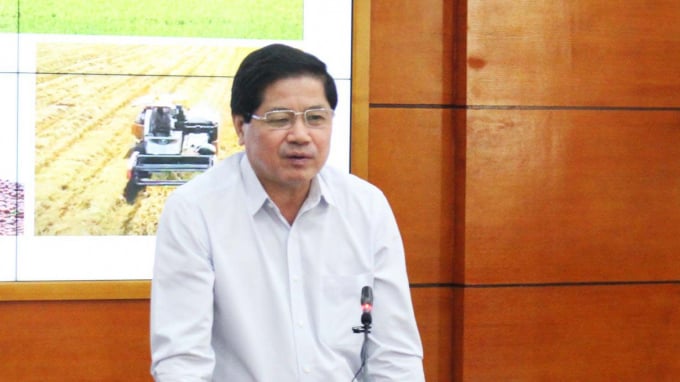
MARD Deputy Minister Le Quoc Doanh assesses that the VnSAT project has overcome many difficulties from the start and during the implementation to reach the "finish line" impressively. Photo: Trung Quan.
The beneficiaries of the project and its policies are 19,200 cooperatives and unions of cooperatives, 14,000 agricultural enterprises, and more than 16 million farmer households (accounting for 62.9% of the country's population). The project has created favorable conditions for districts, communes, and more than 262,200 farmers and households from 8 provinces in the Mekong Delta. Training courses and seminars on sustainable coffee farming and coffee re-cultivation have been held for farmers in 5 provinces in the Central Highlands region.
It has also supported establishing and strengthening farmer organizations. Specifically, in 8 provinces in the Mekong Delta, the project has helped 308 farmer organizations. In 5 provinces of the Central Highlands, it has assisted 202 cooperatives and cooperative groups.
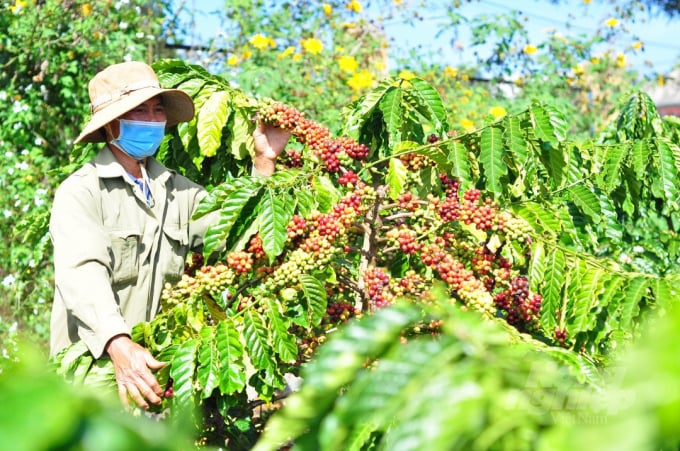
From the real conditions of low productivity and quality, up to now, the VnSAT project has helped "rejuvenated" and "revived a new face" for the Central Highlands coffee granary. Photo: Minh Hau.
The project has supported the construction and upgrading of about 876km of rural roads, 26km of canals, and 47km of electricity connection for 72 electric pumping and 73 transformer stations.
About USD105 million (VND2.4 trillion) equal to 100% of credit capital has been completely allocated to farmers. More than 5,500 loans have been provided to coffee farmers in 5 Central Highlands provinces for their over 11,800ha of replanted coffee.
Profits increase by trillions of dong
According to Mr. Le Van Hien, Head of the MBAP, the VnSAT project has had a very strong effect on reviewing policies and effectively implementing the agricultural restructuring. Specifically, 14 projects of the sector, 6 sub-sectors, and 7 pilot provinces were reviewed along with a series of amended and supplemented mechanisms and policies, helping the restructuring process to be effective and synchronized from central to local levels.
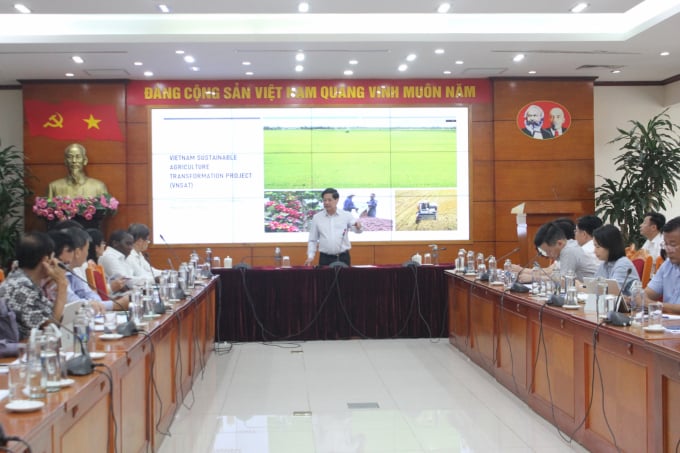
At a conference on summarizing the project's support during its implementation, international donors highly appreciate the VnSAT project's effectiveness in Vietnam's agricultural industry. Photo: Trung Quan.
Thanks to the good application of technical methods, Mekong Delta farmer households participating in the project in the winter-spring crop 2021-2022 have grossed a profit increase by VND7 million/ha of rice cultivation. Thus, for a total of 175,000ha, the project has helped increase profit by VND1,330 billion.
Besides, the VnSAT project also has a positive impact on the construction and upgrading of cooperatives and cooperative groups, improving infrastructure for processing and post-harvest, increasing the value of agricultural products, creating jobs, and improving incomes for farmers.
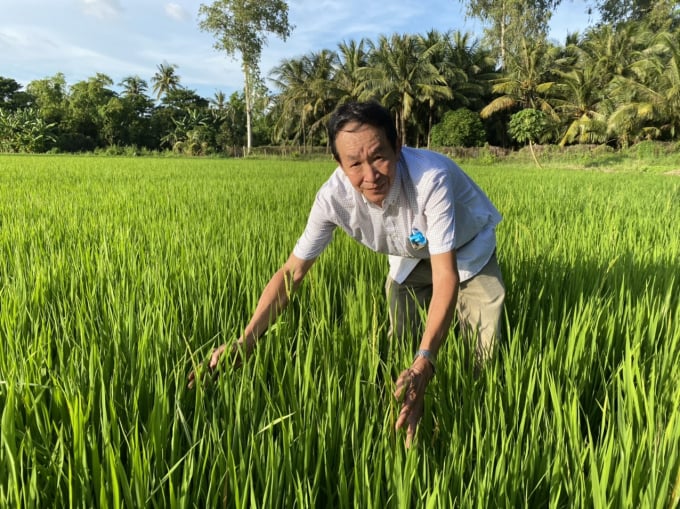
The rice cultivation standard of Mekong Delta farmers has been raised to a new level thanks to the comprehensive impacts of the VnSAT Project. Photo: Dao Chanh.
Speaking at the conference, MARD Deputy Minister Le Quoc Doanh expressed his pleasure that the VnSAT Project has overcome difficulties and challenges to achieve remarkable results.
“This is the first time the farming sector has had an ODA project with large investment capital. However, project management boards in localities are still young and have little experience. Rice and coffee-the two crops selected for implementing the project first faced many problems."
"But up to now, the project has overcome all difficulties in an impressive way,” the Deputy Minister emphasized.
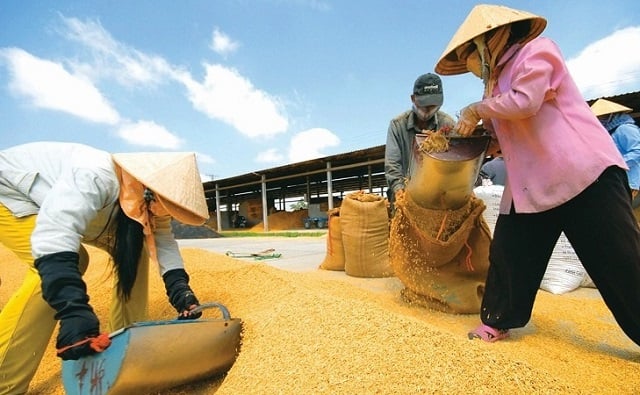
MARD Deputy Minister noted that localities, based on the achieved results, should continue to replicate and promote the effectiveness of the VnSAT project. Photo: TQ.
According to Doanh, the project's success lies in the fact that it has been built and designed correctly and on the right track from the beginning. On the basis of inheriting the achievements that the rice and coffee industry has achieved, the project is now being implemented accurately, close to reality, and scientifically at all levels from low to high.
However, Deputy Minister Doanh also noted to the VnSAT Project Management Board that the statistics should not be only included in reports but must be analyzed and explained to draw lessons for all participating units, each industry, and each locality.
In the coming time, MARD will continue to maintain and promote the results that the project has achieved. Therefore, its relevant agencies need to closely follow, promptly support and guide localities in solving problems caused by a lack of experience.
On the part of localities, in addition to maintaining the existing achievements, they should be active in promoting and replicating to spread the effectiveness of the project towards a sustainable development orientation.“The project's practical effectiveness has been proven. Farmers have enriched their experience. In addition, more than 100 investment components have been promoted. Thus, there is no reason for localities not to continue to maintain and well implement the project," the Deputy Minister said.
Deputy Minister Le Quoc Doanh also noted that for the two industries of coffee and rice, the productivity has reached the "threshold". Therefore, the only way to improve competitiveness and production efficiency is to improve quality and reduce production costs. It is necessary to reduce the use of seedlings and fertilize in a balanced, reasonable, and effective manner..., especially in the context of the current rising input prices.
Translated by Linh Nguyen
![Turning wind and rain into action: [8] Real-time salinity detection and early warning technology](https://t.ex-cdn.com/nongnghiepmoitruong.vn/608w/files/news/2025/06/17/z6704423696987_15fd32ffc26d590d204d520c9dac6786-nongnghiep-151127.jpg)
(VAN) Thanks to the integration of modern hydrological-hydraulic models, remote sensing technologies, and artificial intelligence, the accuracy of hydrological forecasting has significantly improved.
![Turning wind and rain into action: [7] Early disaster warnings help marine farmers minimize losses](https://t.ex-cdn.com/nongnghiepmoitruong.vn/608w/files/news/2025/06/17/z6704423696987_15fd32ffc26d590d204d520c9dac6786-nongnghiep-142942.jpg)
(VAN) In recent years, thanks to early disaster warnings and forecasting, marine farmers in Khanh Hoa province have been able to reduce risks and losses, thereby improving production efficiency.
![Turning wind and rain into action: [6] ‘Four on-the-spot’ disaster management software](https://t.ex-cdn.com/nongnghiepmoitruong.vn/608w/files/news/2025/06/17/e5a48259d6a262fc3bb3-nongnghiep-183800.jpg)
(VAN) By simply activating the scenario on the disaster management software, the relevant authorities immediately know how many households need to be evacuated, where to evacuate them to, and by what means of transportation…
![Turning wind and rain into action: [5] Hue applies modern technology in disaster forecasting](https://t.ex-cdn.com/nongnghiepmoitruong.vn/608w/files/news/2025/06/17/z6704423696987_15fd32ffc26d590d204d520c9dac6786-nongnghiep-093938.jpg)
(VAN) In Hue city, modern technology has recently been applied in meteorological and hydrological forecasting and warning, helping to reduce the damage caused by natural disasters.

(VAN) A cutting-edge farming technique being implemented on an experimental ranch in Arizona's Sonoran Desert has already saved a billion gallons of water over five years, according to Civil Eats.

(VAN) Poultry and pig production and the environment can be boosted through enhanced water technology, according to new research.
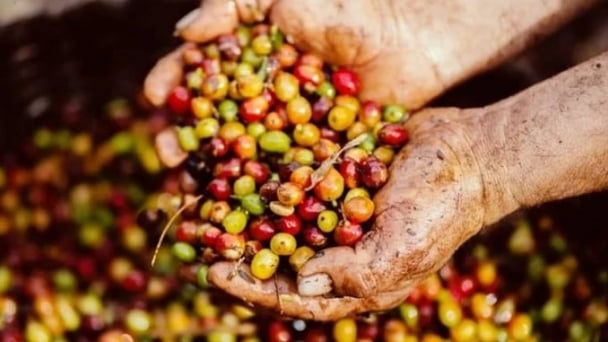
(VAN) Coffee prices on June 16, 2025 are unchanged. In Vietnam, local trading prices are holding steady, ranging around VND 112,000 – VND 112,500/kg.